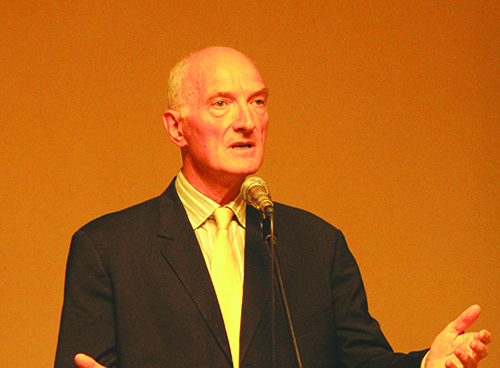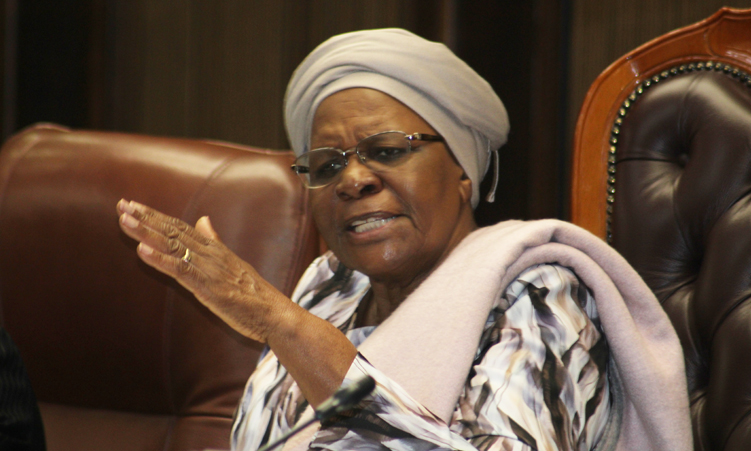HIGH Court Judge Dave Smuts has said the under provision of money to the Directorate of Legal Aid “is a real problem” and expressed hope that the Caprivi treason trial would end soon as it “has placed enormous strain” on state financial resources.
• DENVER KISTING
Smuts made the remarks during a lecture by South African Constitutional Court Judge Edwin Cameron in Windhoek last Thursday evening.
Judge Smuts’ remarks come a few weeks after the High Court murder trial of Richard Hange (25) had to be postponed after information had reached his lawyer that there were not enough Directorate of Legal Aid funds available for the trial to continue.
Judge Cameron focused on the concept of constitutionalism and the rule of law.
He said Namibia has played midwife for the South African democracy.
“You showed us the capacity for a negotiated settlement subject to the constitution,” he said.
The Turnhalle negotiations are another example which Namibia set for its southern neighbour, he said. Although law is a very tenuous idea, one should never underplay the power of the idea of law, Cameron explained.
In South Africa, Cameron said, there are terrible high violent crime and corruption rates, while graft has become endemic, and state officials have a sense of entitlement.
As far as social justice is concerned, South Africa is “very far from being a just society”, especially regarding racial discrimination, he said. “It is a deeply shameful thing about our claim to live in a society that is aspiring to be just.” Irrelevant personal specificities like skin colour, sexual orientation and age, are still discriminated against.
Cameron said for Namibia and South Africa to be constitutional states, citizens would have to be reminded of the history of colonisation, exploitation and subordination.
What was peculiar about apartheid – “a terribly shameful thing” – was its legal embodiment although it did not have as much bloodshed as the Herero/Nama genocide.
He also said under a constitutional order, “the exercise of all power is subject to the constitution”.
Former president Thabo Mbeki’s denial of HIV-AIDS was the “biggest crisis of our democracy”. To bring about change, one needs “angry, rowdy, loud activism”, Cameron said.
As lawyers, one should remain committed to the idea of using law not as an instrument of oppression but to create greater access and greater social justice.
But, he cautioned, a constitution is only as strong as the people supporting it. “It depends on the social power of those who believe in it.”
Political commitment, violent crime, corruption and social injustice and inequality are the major challenges, which the constitution faces, he said. “But we can overcome whatever challenges there are. Corruption is reversible. Inequality is also reversible.”
Stay informed with The Namibian – your source for credible journalism. Get in-depth reporting and opinions for
only N$85 a month. Invest in journalism, invest in democracy –
Subscribe Now!










